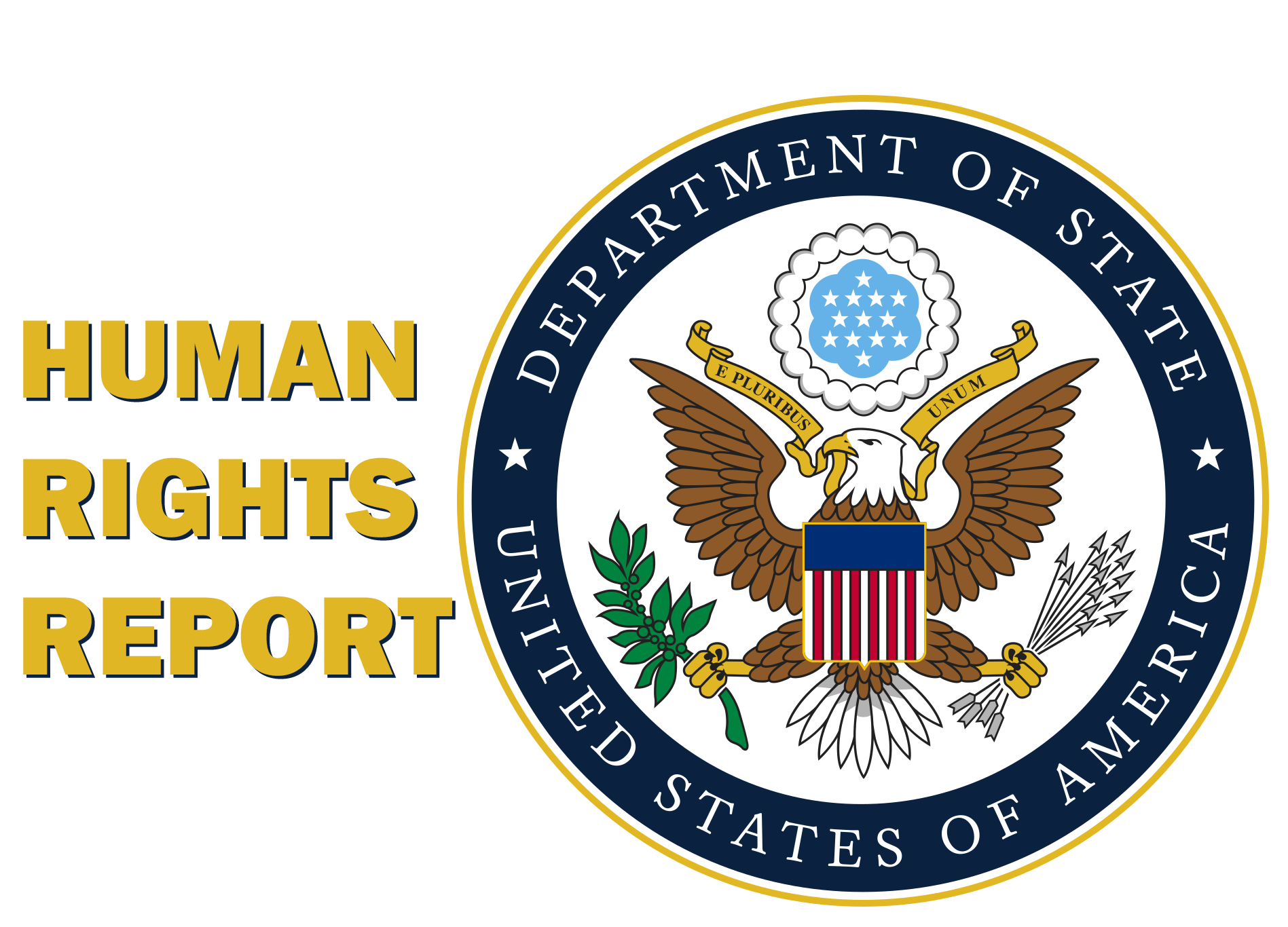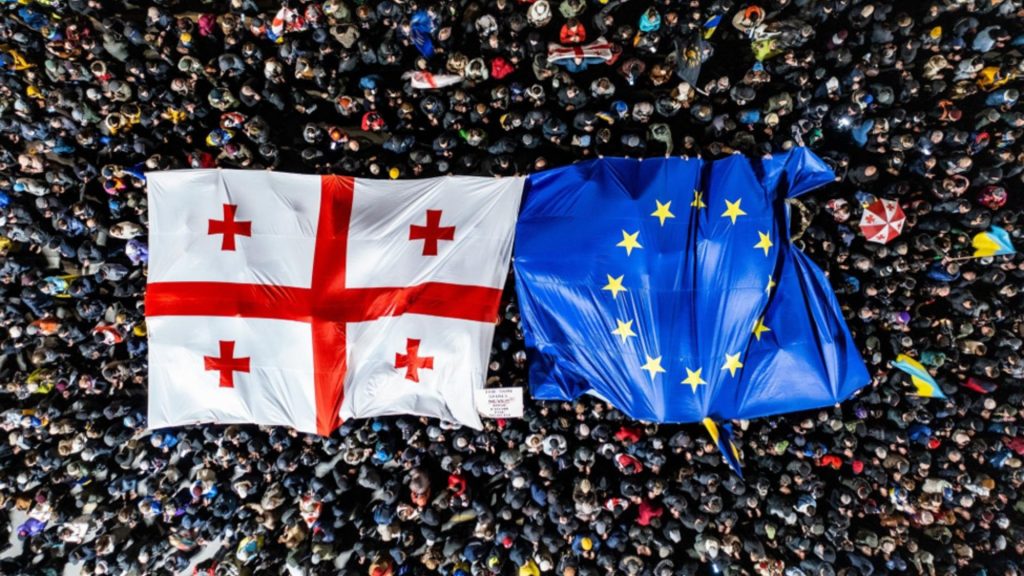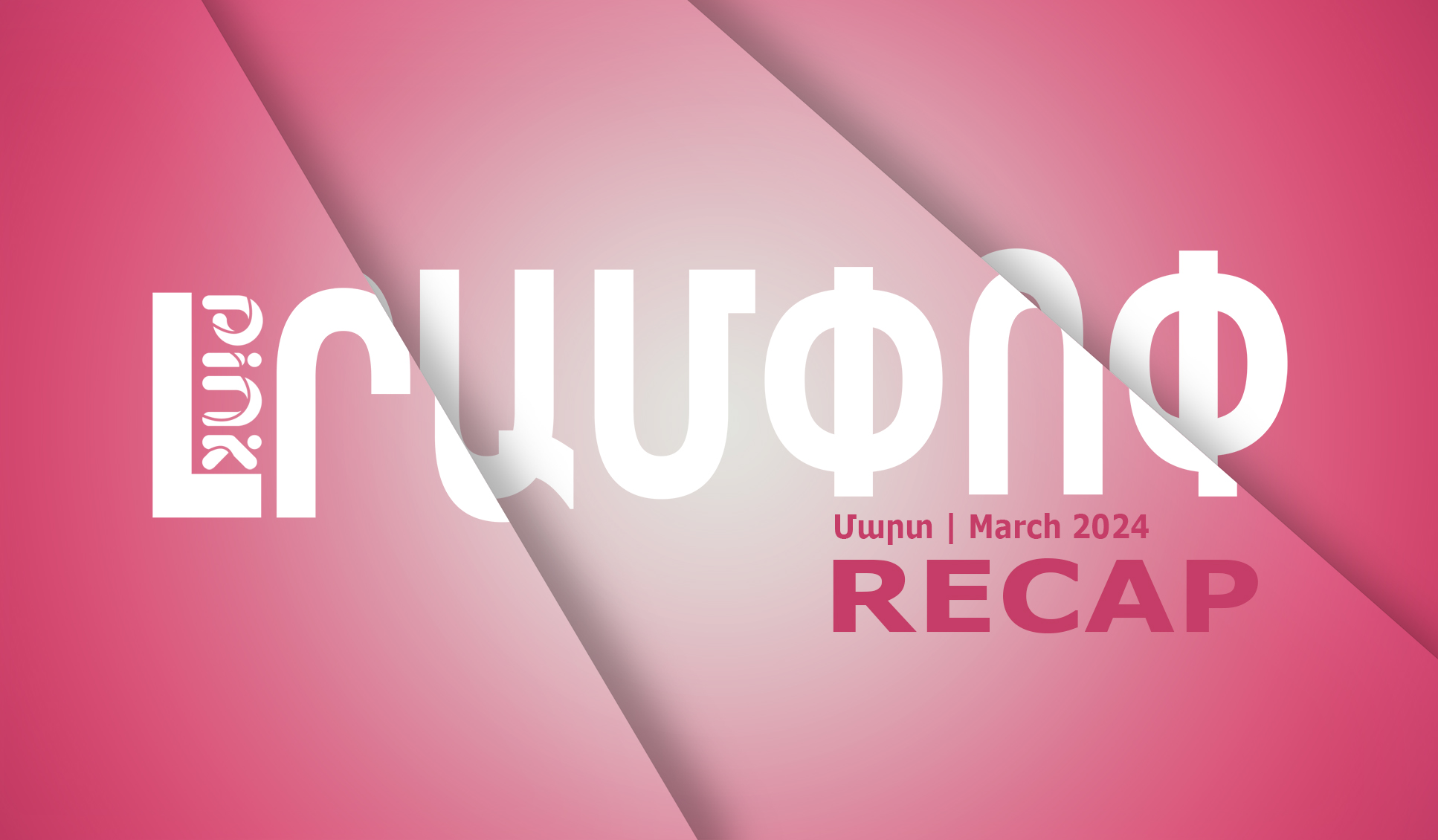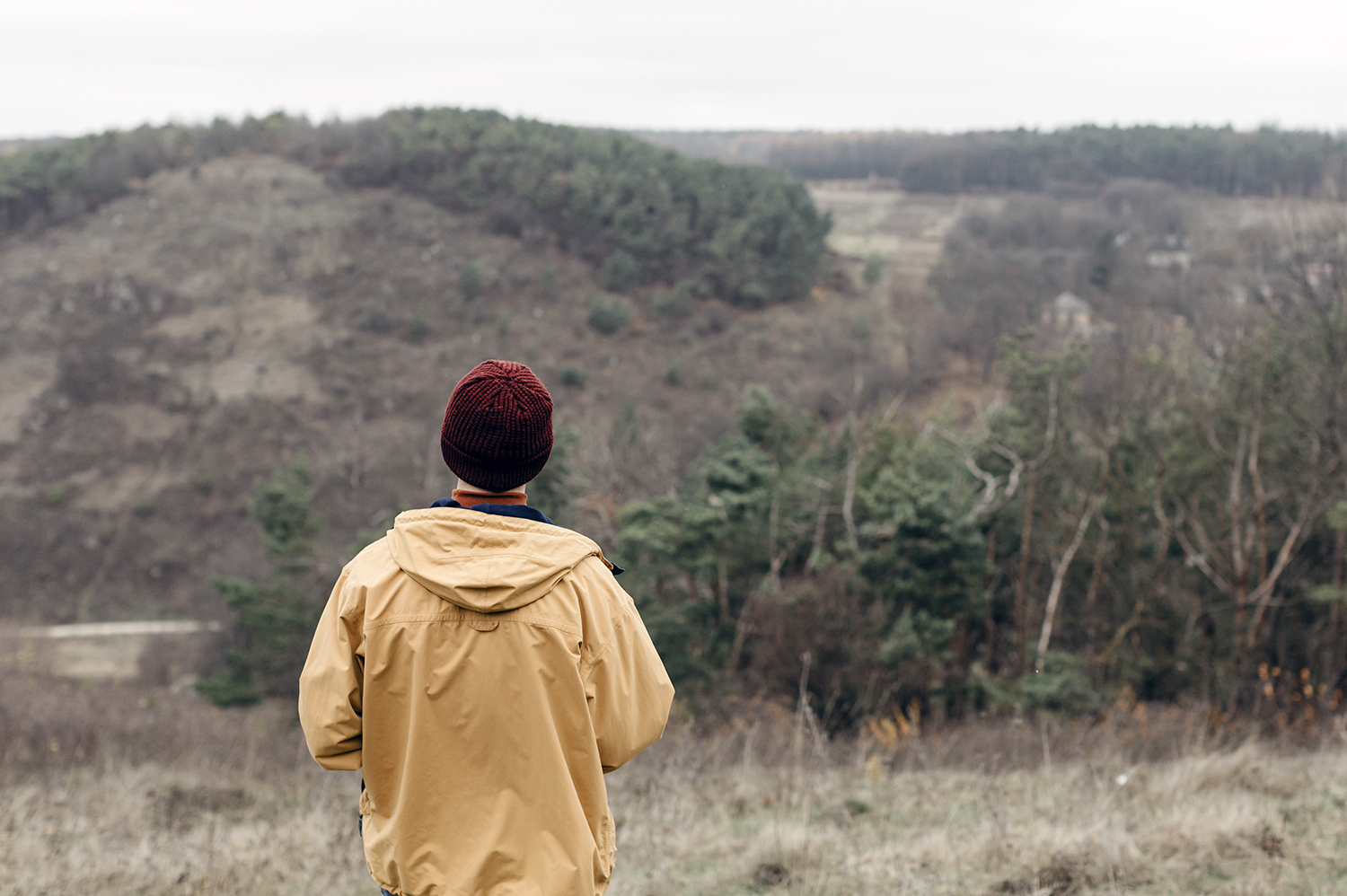Human rights situation of LGBT people in Armenia 2011
Introduction
LGBT rights violation can be witnessed in various spheres of social life. LGBT people state that there is discrimination toward them in educational institutions and there were cases when a person was bullied by a teacher because of being feminine (in case of a male person) or masculine (in case of a female person), forced to drop out from the university because of his/her sexual orientation. Scientific papers and work on this issue is not welcomed, because the stance of the lecturers is that it is a perversion and the person is perverted if he/she wants to work on this topic. A gay student was not allowed to write a paper about homosexuality as the lecturer stated that he can’t be objective taking into account his sexual orientation.
Employment remains one of the most problematic aspects of life for LGBT people as employers refuse to hire someone who is open about his/her sexual orientation or his either feminine (gay) or masculine (lesbian). Transgender people have no opportunity to be open about their gender identity and there is no relevant legislation which will allow transsexual persons to change sex. Quite often LGBT people refuse to visit healthcare institutions in case of a necessity being not sure about the confidentiality there. If they contact civil society organizations they are being referred to LGBT friendly doctors, otherwise there is a high risk that person will be discriminated and will receive degrading attitude.
Army remains one of the most challenging institutions due to its closed nature and non-written rules which exist there and lead to discriminative and violent approach toward this group of people. In most of the cases media approach toward LGBT people is biased and based on stereotypes, prejudice and has no scientific and contemporary approach. There is no political willingness from the side of government institutions to protect LGBT rights and quite often they appear in the position of violators.
The stance of civil society toward LGBT rights is not united as well. Despite the fact that civil society organizations are able to work in the sphere of LGBT rights protection and take actions for changes, there is no support from the government and public and some part of civil society.
Although there are no radical changes in the above mentioned aspects, in this report we will focus on several aspects of social life and will present most common issues and problems of LGBT community in the Republic of Armenia which were registered in the past 2011.
Public attitude
Public Information and Need of Knowledge (PINK Armenia) NGO conducted a survey on “Public opinion toward LGBT people in Yerevan, Gyumri and Vanadzor cities” in 2011. According to the survey only 6.3% of the respondents regard LGBT persons as a vulnerable group in Armenia. 18.6% of the respondents consider “non-traditional” sexual orientation as a disease, and among 72.1% can be seen negative attitude toward this social group, and for the majority of those respondents, the acceptability of being an LGBT also depends on national identity, and thus 52.7% believe that it is not appropriate for members of the Armenian nation to have LGBTs, 66.9% of respondents believe LGBT persons should be condemned by society. Respondents who hold an intolerant attitude and stance toward LGBT persons refrain from associating with them. 55.3% of them would just stop associating if they found out that their acquaintance, friend or relative were an LGBT person. 87.6% of the respondents who have expressed their attitude toward LGBT persons have mentioned that they wouldn’t use a dishware set that was used by an LGBT person previously. It can be concluded from the survey results that overall 49.6% of the respondents are not tolerant toward LGBT people. 74.5% of respondents reckon that the state does nothing regarding policy making toward LGBT persons, thus 71.5% suppose that the state should fill in this gap by struggling against them. In this context it is remarkable that the police are generally regarded not as a law enforcement body, but as one fighting against human rights.
Most of the respondents do not have enough information on sexual orientation and gender identity and their knowledge related to LGBT people is mostly based on their stereotypes and does not have scientific basis. The respondents get information on LGBT persons mostly via television: leisure programs and broadcasts 31%, and informative programming 22.6%.
LGBT people are subject to bullying and harassment in nearly all spheres of social life, especially in cases when the appearance of the person corresponds to the stereotypes and prejudice of the society toward LGBT people. The reaction of the society toward them can range from name calling up to physical violence. These can have the form of one time action, as well as can be done on permanent basis by the neighbors or relatives, or the people from that person’s social environment. In these cases the victims of violence and abuse refuse to apply to law enforcement bodies, stating that the bullying will continue there the evidence of which can be found in the cases when beneficiaries apply to NGO for legal services and for their rights protection.
Church
In comparison to previous years this year church addressed the issues of LGBT people in our society both through media and organization of discussion on the topic of manias including homosexuality as a form of mania. During the discussion organized by the church representatives along with the topics of drug, alcohol and cigarette manias, the “mania toward men” was one of the main issues discussed. The main purpose of it was to explain to the participants of the discussion that homosexuality is a form of mania and people by themselves make a choice to have “mania toward men”. Homosexuality was depicted as a sinful choice of a person who is inclined to have mania toward the individuals of the same sex.
Besides this discussion the priests made statements during the interviews and press conferences on various issues. Through media communication the church representatives portray LGBT people as a threat to our country mentioning that it is a direct result of “European values and traditions”. The approach of the church toward the homosexuals is that it was imported to Armenia by “Western powers” aiming to destroy Armenian traditions and values. Although the main focus of the media activities is not homosexuality and issues related to that, but the church representatives use these opportunities to raise this topic and present the LGBT people as a source of series of social problems occurring in the society. In general we can state that church is prone to represent LGBT people as a social group which is artificially created in Armenia and the main aim of which is to pervert the existing values, weaken the unity of the society and lead Armenians to immorality. The stance of the church on this issue is that it’s a sin and all LGBT people are sinful and have anti-Christianity life. Usually a parallel is drawn with “Sodom and Gomorrah” and homosexuality is presented as a Sodomian sin.
It is commonly acknowledged that religious minorities are considered to be a threat to Armenian nation and Apostolic Church and the main aim of them is to deteriorate the role of the Apostolic Church. In this context church representatives use the opportunity to draw parallels with LGBT people and present them as a risk toward Armenian national security, which along with religious minorities came to Armenia for destroying it. The church is an authority for the majority in our society. Thus, these kinds of statements by the church trigger the hostile environment toward LGBT people and prepare a solid ground for the society to fight against this social group bringing as a fact the authority of the church and arguments provided by this institution.
Media
The representatives of mass media have keen interest toward LGBT community. Unfortunately, the coverage on LGBT issues is in most of the cases biased, based on prejudice and stereotypes of the journalists, does not have scientific ground and framed in a scandalous manner. The issues of LGBT people have coverage in all types of mass media. Quite often this topic finds coverage in electronic media.
In general mass media coverage on the issues of LGBT community is offensive, confirms existing stereotypes and prejudice with regards to LGBT community. The information provided is not based on the facts, does not have evidence and very often can be a result of rumors and misinformation. Besides, spreading not reliable and subjective information about LGBT people, sexual orientation and gender identity, articles/broadcastings/TV programs degrade LGBT people and aim to spread aggression toward them. In most of the cases LGBT issues are represented as a phenomenon which is against Armenian traditions, values and can’t have a place in the society, moreover, quite often it is put in the frames of national security.
In case there is coverage on the issues of pedophilia and sexual abuse, journalists seek to link it with homosexuality and LGBT people and blame them in these kinds of actions Mass media represents LGBT people as pedophiles and accuse them in sexual violence.
In several cases journalists did not keep the confidentiality of LGBT people when they took interview from them and disregarded the preliminary agreement of changing that person’s voice and not show his/her face. In none of these cases the journalists were punished as these people were afraid of publicity.
In comparison to other types of mass media, TV is the most homophobic and all the broadcastings related to LGBT people spread hate speech and promote hate crime toward them.
Police
Human rights violation of gay and transvestite people from the side of police mostly takes place in the cruising park where gay and transvestite people gather. Police patrols near the park. In case of violence toward a gay or transvestite person from a passersby police does not undertake any actions to stop it and prosecute the violator. Gay and transvestite people who usually go to that park mention that police station has fixed their phone numbers and when they call them in case they are bullied and/or beaten they do not respond.
There are documented cases when police harasses gay and transvestite people who are in the park. Police provokes them and subject them to violence.
Case:
A policeman in civilian clothes in a police car approached a transvestite person standing near the park, started to swear using offensive and degrading words and ask what she [transvestite] was doing there. The policeman went out of the car and started to beat her. After that he went back to the car and left. The victim went to the police station to make a claim, but police refused to accept her appeal. Although a legal service was provided to the victim by the NGO but she refused to proceed with the case as she was afraid of the further actions that police can undertake.
Police follow gay and transvestite people in the cruising park and when they see them with a man, they threaten them that if that person does not give money they will call his relatives, will visit his neighborhood and will tell everyone that he was in that park either with a gay or with transvestite. Although the victims realize that police violate their rights but they are afraid to appeal, as they have no security guarantees. Despite this there was a case when a transvestite appealed and the policeman proposed her money to take her claim back. Although she did not take money from him but took back the claim again because of the absence of security guarantees.
Besides the above mentioned cases there are incidents when without any legal justification police take gay or transvestite persons to the police station. They keep them for couple of hours and let them out when they give a bribe. Usually these actions of police are accompanied with verbal and physical abuse. There is no information whether these activities by the police have received approval of high ranking officials or they do it by their own initiative. For their rights protection NGO document these human rights violation cases and try to prevent them through advocacy as judicial procedure is not possible to be implemented at this point due to the absence of the official claims from the victims.
In December 2011 police took about 10 transvestite persons to the Skin and venereal diseases dispensary for the forced testing on sexually transmitted infections. After these persons were tested, some of them were set free, and the rest were taken to the police station where they were kept till the morning. The victims were told by the policemen that they received an order from their authorities to force gay and transvestite people to leave the park and not gather there and this was the first step toward that goal. Although the victims did not agree to make a claim, the NGO has sent appeals to the Human Rights Defender’s Office and Prosecutor General’s Office. The response from both institutions was that the case was forwarded to the RA police. This case is still in the process.
This case served as a basis for information spread in mass media that new city major of Yerevan Taron Margaryan decided to ”clean” the park and return it to the ”normal” citizens. Although there is no this kind of official statement by the city major, there is no other information provided by the municipality which will approve it or deny and will present the real stance of the new city major on this issue. Municipality refused to give any comments to the journalists. Besides this the head of RA Police Vova Gasparyan gave an interview during which to question of the journalists what is he going to do with gay and transvestite people gathering in the park, he answered that had not managed to address that issue yet but he will and told the journalists that they enjoy his support in their actions against these people.
Human Rights Defender’s Office
Although evidence of LGBT rights violation prevails, there are positive steps forward as well. The Ombudsman of RA Karen Andreasyan stated that he is Ombudsman + Civil Society. In order to strengthen cooperation with civil society organizations he has signed memorandums with civil society organizations and bodies from 10 spheres. Among them with 2 civil society organizations which deal with LGBT rights protection issues. Despite the fact that several non-governmental organizations boycotted this action of the Ombudsman and because of this memorandum with these two NGOs they refused to sign the memorandums with him, but this did not deter him from his initiative.
Event
LGBT related events in Armenia are usually closed in a secure area for only LGBT and LGBT friendly people. The only public event in the country is dedicated to the International Day against Homophobia and Transphobia (IDAHO). Since 2010 PINK Armenia together with partner organizations and human rights activists is organizing Rainbow Flashmob in a public place and still there were no serious incidents. Event was announced publicly neither for society nor for authorities, only after the event organizer sent press releases and gave interviews for media.
Success story
Armenian music band VO.X, which presented same-sex relations in their music video “I love Armenia” as perversion, after many months negotiations has re-edited it by removing the reference to homosexuality as perversion. We have reached a mutual understanding with the group of human rights activists and consider this matter resolved as dialogue has taken place.
Conclusion
In LGBT rights protection the main challenge remain the fact that victims are afraid of making claims and the publicity that their cases can get. Thus, the advocacy remains the main strategy for LGBT rights protection. There is a necessity for media trainings and raising awareness of the society on sexual orientation and gender identity. Institutional changes are required for making changes in different spheres of social life targeted to LGBT rights protection. In this regards, there are initiatives and efforts from the side of civil society organizations which are supported by local and international organizations. Multidimensional work is conducted targeted to drawing government attention on LGBT rights protection issues as well.




